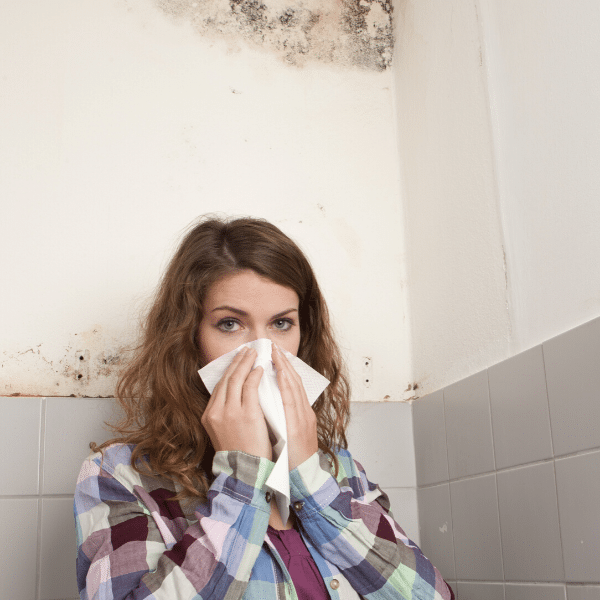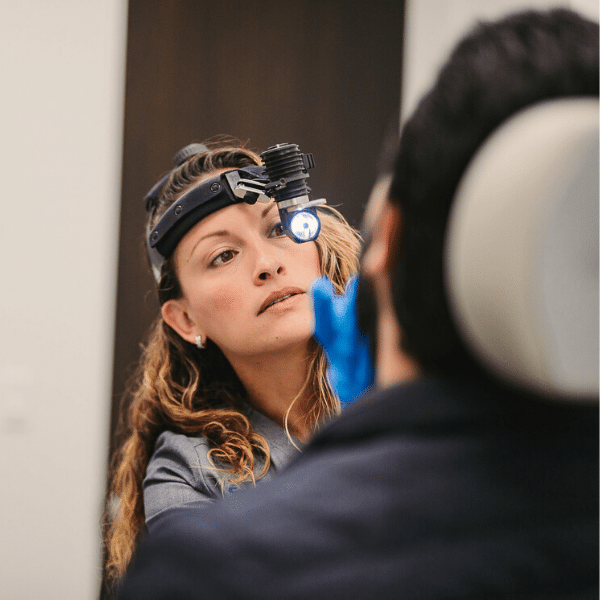Summer may be gone, but any seasoned Floridian should know that, unfortunately, mold problems don’t go with it. For most of Florida, an allergy to mold remains a looming nuisance year-round. Today, at Florida Sinus & Snoring Specialists, we’ll take an in-depth look at the threats mold generally presents, not just during Florida’s pseudo-winter months.
Signs of Mold Allergy
First, let’s take a brief look at the symptoms commonly experienced when dealing with mold or black mold allergy, which may include a mixture of the following:
- Sneezing
- Runny or stuffy nose
- Cough and postnasal drip
- Itchy eyes, nose, and throat
- Watery or red eyes
- Dry, scaly skin
- Wheezing
- Sinusitis

In some cases, and depending on the severity of the mold problem, exposure to mold can cause severe reactions that may require immediate and comprehensive medical attention, such as sinus or throat infections and asthma attacks.
Mold in the Hot and the Cold
Florida winters may see cooler temperatures, but they are still quite humid and wet, meaning mold can always thrive in this climate. Even if the weather gets uncharacteristically cold in rare instances, it’s crucial to know that freezing temperatures can deactivate mold spores, but they do not kill them. The spores are resistant to drying out, and when temperatures go up again after a cold spell, spores will reactivate and continue to grow.
Winter mold can be especially problematic for many Florida residents because they leave their homes vacant during summer months. The summers in Florida are notoriously hot and humid. This environment can be particularly problematic for ocean-front or lakefront dwellings. When winter homes lie dormant throughout the summer, shades prevent light from entering, interior moisture levels rise, and air circulation decreases. These factors directly contribute to mold growth.
If you leave your winter home unoccupied, then you may have a mold infestation if you find any of the following symptoms when you return:
- Visible mold growth – Mold looks like a cottony or leathery growth or a dark stain on surfaces
- An odor in your home that smells earthy or musty
Therefore, mold prevention should be a priority of any Florida resident year-round.
Keeping Mold at Bay
Whether you are a permanent or seasonal resident of Florida, it’s highly valuable to have a clear sense of how to control mold issues all year, and how to treat mold allergies should they arise. In short, water is the key to mold. Without it, mold cannot grow, much less multiply and spread. The easiest way to prevent mold from gaining a foothold is to control dampness. Keep your home clean and dry. When water stands for even 24 hours, common molds can propagate. Keep humidity levels below 60 percent and vent moisture from showering and cooking outside.

Treatment
If you do not take preventative measures against mold quick enough and allergy symptoms occur, you may want to consider treatment. Nasal corticosteroids and antihistamines are typical applications for temporary relief, but chronic symptoms may require more long-term treatment plans, such as one of our minimally invasive nasal and sinus procedures, or immunotherapy.
Control Your Mold Allergies With Dr. Mandel
Sick of suffering from mold-related allergies? You need to contact an experienced sinus and allergy professional at Florida Sinus & Snoring Specialists. Call us today at 954-371-1899 or request an appointment online to schedule an allergy consultation today. Dr. Mandel and his team can help find the right long-term treatment plan for you.
